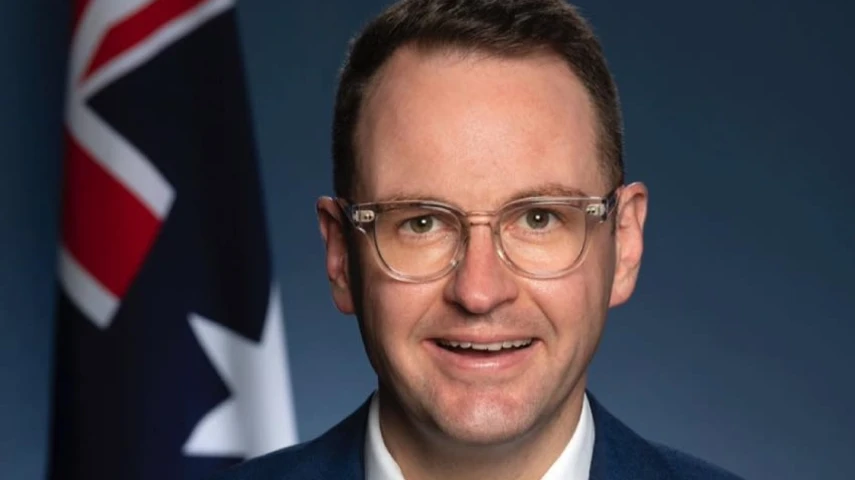Bragg dubs big super 'Australia's biggest hypocrites'



While the Liberal Senator has accused super funds of locking everyday Australians out of the housing market, industry advocates argue the Coalition’s policy would only push home ownership further out of reach.
Senator Andrew Bragg has slammed Australia’s largest super funds, accusing them of setting their ambitions on becoming the country’s “biggest landlords".
In a recent statement, Senator Bragg highlighted data from the prudential regulator showing that some $132 billion is invested in Australia’s property market through listed and unlisted assets held within default superannuation accounts.
“Ten large super funds including; AustralianSuper, Australian Retirement Trust and Cbus have invested more than $4.4 billion into Australian houses,” Bragg said.
The senator argued that, while super funds are major investors in the local housing market, they are undermining Australians' ability to buy their own property by preventing them from tapping into their retirement savings to do so.
“The biggest super funds are massive investors in Australian housing, whilst simultaneously campaigning against Australians doing the same,” Bragg said.
“These same world-beating hypocrites spend $25 million each year on advocacy and lobbying to stop Australians from investing into homes which could be their own.”
He particularly took aim at funds like AustralianSuper and Cbus, alleging they have “dropped millions” on advocacy payments to industry groups that have campaigned against allowing Australians to withdraw super for a housing deposit.
The Coalition’s proposed super for housing plan has been a hot topic for some time. Supporters of Bragg’s position argue the policy empowers Australians to take greater control of their retirement savings, while critics liken it to raiding the super system.
Industry bodies like the Super Members Council (SMC) and the Association of Superannuation Funds of Australia (ASFA) have both on separate occasions pointed to research suggesting that the policy would only inflate property prices, pushing the dream of homeownership further out of reach.
Having previously warned that using super for home ownership is “not an effective policy”, and risks undermining long-term retirement outcomes, ASFA’s CEO Mary Delahunty said this month the Coalition’s proposed super-for-housing scheme runs counter to the legislated objective of superannuation.
“This generation, we believe, should not be forced to choose between a home today and a secure retirement tomorrow. And preservation of super must be protected,” Delahunty said at a Momentum Media Election 2025 event.
But, it is this advocacy which Bragg claims demonstrates big super’s desire to become “Australia’s biggest landlords”.
“This has been supported by Labor which loves super funds investing in housing,” he alleged.
“Under Labor, your super can invest in any home except your own. It is wrong. Australians should have the choice to use their own money to support their own home, not someone else’s.”
SMC claps back at ‘misleading’ claims
In its own response to Bragg, the SMC slammed the senator for his “misleading claims”.
“Senator Bragg’s imputation that profit-to-member funds are buying up flats, apartments, townhouses, and freestanding homes which they then lease out to Australians is incorrect,” the industry body said in a statement last week, clarifying that funds, instead, invest in property developments including for social and affordable housing.
“The insinuation by Senator Bragg that profit-to-member funds are turning up at Saturday auctions to outbid first home buyers for the family home is fanciful.”
According to the advocacy group, ample evidence suggests that policies that allow members to withdraw from their super for a housing deposit will only inflate house prices, and ensure Australians are worse off in retirement.
Namely, modelling from independent economist Chris Leishman has found that house prices could rise by as much as 10 per cent if the super for housing scheme is enacted.
“New Zealand’s lived experience of allowing first home buyers to withdraw super for house deposits is a cautionary tale for Australia – house prices took off, and home ownership rates fell by 7 per cent for Kiwis in their 30s,” SMC said.
“By investing in new large-scale property, profit-to-member super funds are helping to solve the housing supply crisis, building more homes for Australians, and generating returns for their retirement.
“The evidence is clear. Withdrawing super for house deposits would mean the same people buying houses but paying more for them – and leave Australians poorer in retirement.”
Recommended for you
Australia’s largest superannuation fund has confirmed all members who had funds stolen during the recent cyber fraud crime have been reimbursed.
As institutional investors grapple with shifting sentiment towards US equities and fresh uncertainty surrounding tariffs, Australia’s Aware Super is sticking to a disciplined, diversified playbook.
Market volatility continued to weigh on fund returns last month, with persistent uncertainty making it difficult to pinpoint how returns will fare in April.
The Association of Superannuation Funds of Australia (ASFA) has called for the incoming government to prioritise “certainty and stability” when it comes to super policy.












